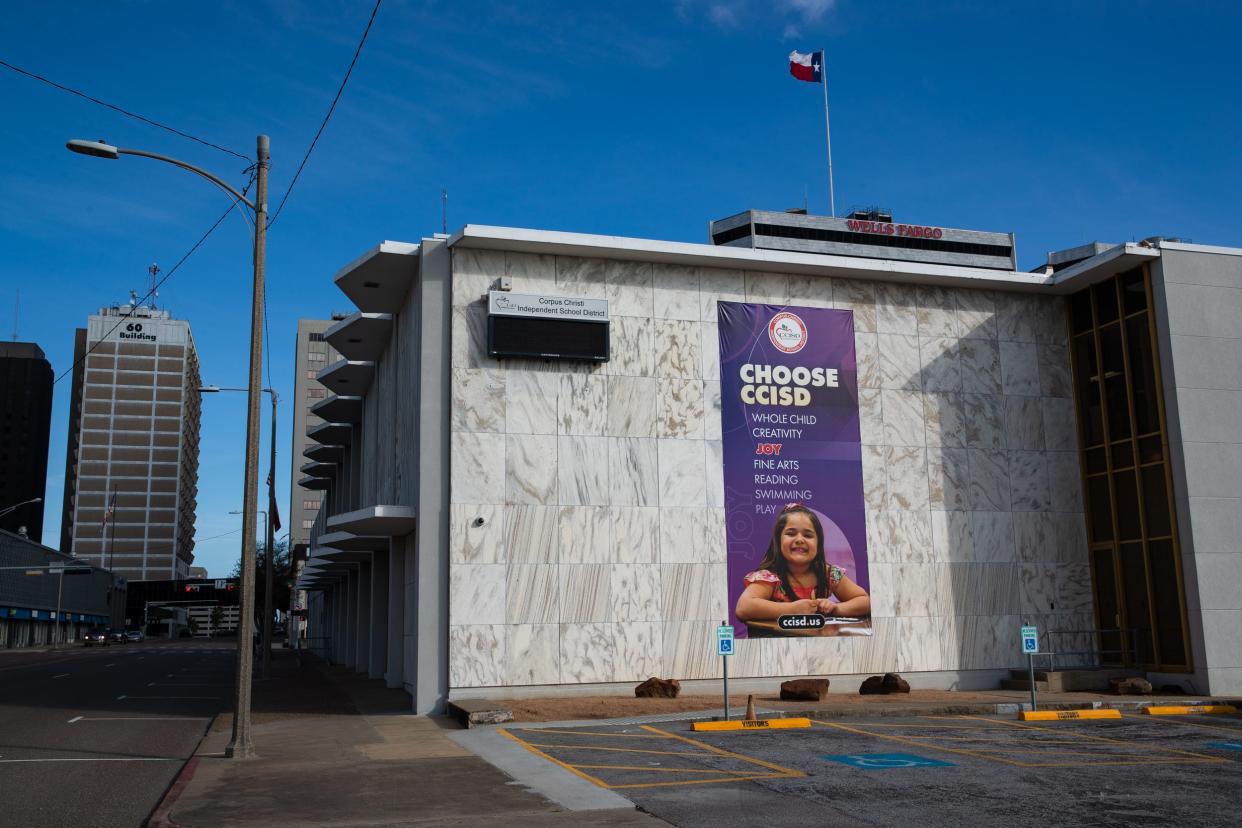The TEA reviewed Corpus Christi ISD's special education program. Here's what it found.

The Corpus Christi ISD Board of Trustees curriculum and students committee met Monday afternoon to hear about the Texas Education Agency’s cyclical review of the district’s special education and dyslexia program, learning that the district was out of compliance in one area.
Many districts across the state had similar results, CCISD senior director for special education Melly Gonzalez Guerra said.
The TEA began a review of the district in September 2022, Guerra said, issuing a report this summer after reviewing the district’s operating procedures, data and a selection of student files.
Of the districts reviewed by the state during the same cycle, 46% were found noncompliant in the area of Individualized Education Program development. IEPs are the plans school use to ensure children with identified disabilities receive specialized instruction or services.
All of CCISD’s policies were found to be fully compliant. But, when the state reviewed 26 student folders from CCISD, it found only 10 were compliant in the area of IEP development.
This means that the noncompliant student folders didn’t clearly indicate how the student’s disability impacted their learning.
In all other areas, including IEP content, implementation, state assessments and transition, the district was fully compliant.
Because of the one area of noncompliance, IEP development, the district’s overall compliance status is noncompliant.
As a result, the district now has a corrective action plan. In her presentation, Guerra highlighted successes of the review, including “exceptional” record keeping and documentation and staff demonstrating “expansive knowledge” and a “growth mindset.”
Part of the picture for CCISD is a substantial increase over the past couple years in the number of students receiving special education services and workload district diagnosticians face. At the same time, the district has struggled with special education teacher, paraprofessional and diagnostician vacancies.
There were more than 5,000 special education students in the district in 2022-23, compared to 3,998 in 2021-22. As of Sept. 5, the district was already serving 4,928 special education students.
At the beginning of the month, the district had done about 100 evaluations under the Individuals with Disabilities Education Act.
Over the last year, the district had more than 1,550 IDEA evaluations, up from 844 in 2020-21 and only 538 in 2020-21.
The high increase in special education is primarily because the federal government directed the state to shift dyslexia services under the special education umbrella. The state of Texas has in the past struggled to meet federal expectations in special education.
In 2018, the U.S. Department of Education announced the Texas Education Agency was non-compliant with special education standards based on a 2017 visit. At the time, the state had an unofficial cap of 8.5% for students receiving special education services, according to reporting from the Houston Chronicle.
“The removal of the special education identification percentage cap and the updated dyslexia process for screening, referral, evaluation and qualification have directly impacted the total number of IDEA evaluations completed,” Guerra said.
This summer, the U.S. Department of Education indicated the TEA had made the necessary changes after years of longstanding noncompliance with the state dyslexia program. The TEA’s cyclical review program begin in 2020 as a result to federal findings that the state was not sufficiently monitoring how school districts implement IDEA rules and regulations.
The state cyclical review of CCISD found the district’s dyslexia program meets requirements.
“We are proud of our dyslexia team on this accomplishment, and we’ll strive to ensure best practices continue to be in place for our students,” Guerra said.
Guerra said the report will be an integral piece in planning and updating policies and procedures.
“The aim will be to move beyond the goal of compliance and into best practices to ensure student success,” Guerra said.
The district has already submitted a corrective action plan to address the IEP development needs. The due date for correcting noncompliance is July 2024.
More: Corpus Christi ISD sees special education student increases, staff vacancies
Corpus Christi ISD joins lawsuit against TEA over school ratings
This article originally appeared on Corpus Christi Caller Times: TEA finds Corpus Christi ISD noncompliant in special education

